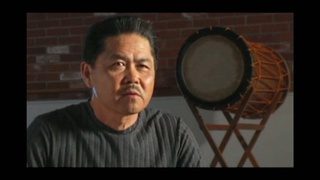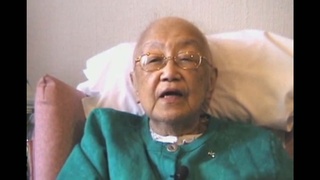Interviews
Tough life at boarding house (Japanese)
(Japanese) There was a boarding house. It was cheap. People like helpers of gardeners were staying there. And when I came home the place was seized by this group of people from this school and they told me to join them in phony gambling. Losers were told to sing, and if they refused, an ash tray would be thrown at them. I didn’t know there was a thing like that, something I experienced at the boarding house in America. I lived in a small room, which was about 1.5 tatami-mat size (about 2.5 square meters). I believe I was paying 100 dollars – maybe it was about 80 dollars, with breakfast and lunch bento included. I was there for about two months, but I couldn’t stand it and left.
Date: August 4, 2015
Location: California, US
Interviewer: Mitsue Watanabe
Contributed by: Watase Media Arts Center, Japanese American National Museum













